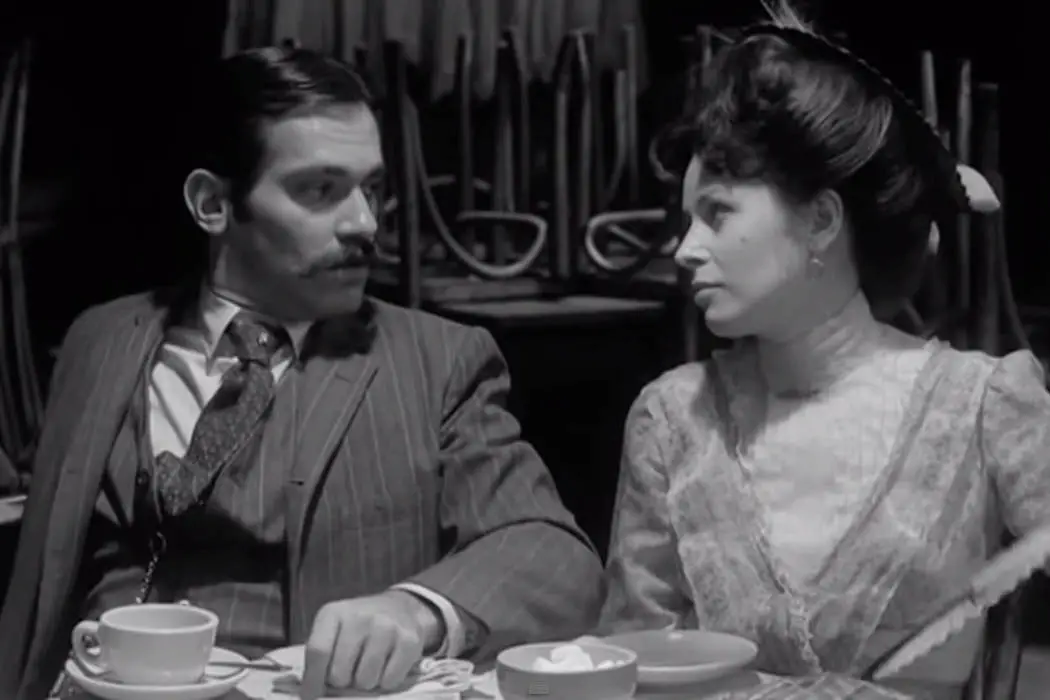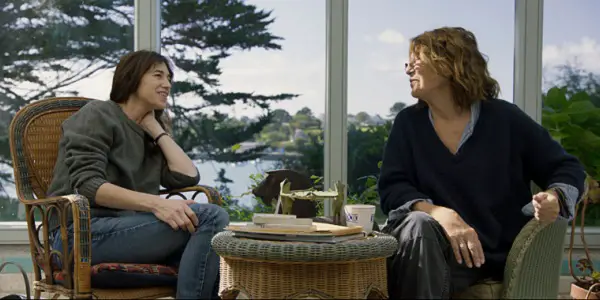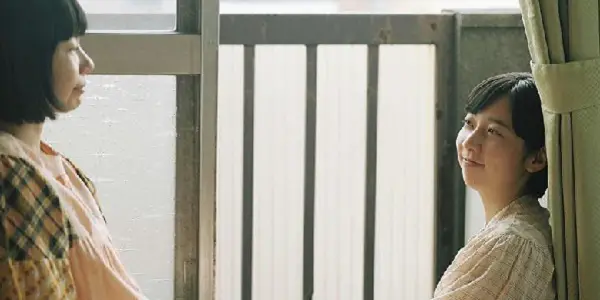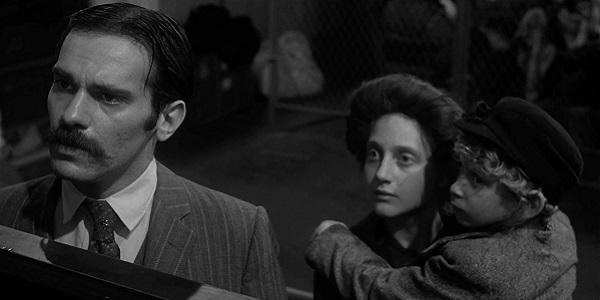NYFF 2021: JANE BY CHARLOTTE, HARUHARA-SAN’S RECORDER, HESTER STREET

Lee Jutton has directed short films starring a killer toaster,…
The Main Slate at the 2021 New York Film Festival was one of the largest and most illustrious in recent memory, featuring 32 much-anticipated films from the likes of Jane Campion, Pedro Almodóvar, Apichatpong Weerasethakul, and Céline Sciamma. Yet to only partake in those offerings—as excellent as many of them may be—is to miss out on some of the most fascinating films the festival has to offer in its Spotlight, Currents, and Revival sections. Read on for my thoughts on a documentary portrait of an aging icon, a beautifully low-key meditation on loss, and a brand-new restoration of a feminist classic.
JANE BY CHARLOTTE
The documentary Jane B. par Agnès V., released in 1988, is a lovely, lilting portrait of actress, singer, and style icon Jane Birkin, directed by Agnès Varda. The idea for the film came about when Birkin expressed to Varda her apprehension about turning 40. Varda, almost twenty years Birkin’s senior, reassured Birkin that not only was 40 a wonderful age, it was also the perfect time to look back and reflect on one’s life and career. In the film, completed while Varda was also directing Birkin in the film Kung-Fu Master!, the two women discuss Birkin’s childhood in England and everything that came afterward, including fame, love, and motherhood.
Now, 33 years later, Birkin is once again the subject of an intimate documentary—but this time, the woman behind the camera is Birkin’s own daughter, Charlotte Gainsbourg, making her directorial debut. Jane By Charlotte, which screened as part of the Spotlights section at the NYFF, is a loving portrait of Birkin not just as an artist, but as a mother and grandmother. In her earlier conversations with Varda, Birkin shared her memories of the past and hopes (and anxieties) for the future with an elder who was able to provide her own insights on aging as a woman and as an artist, but in this film, Birkin is the one passing down wisdom to the younger generation.

Gainsbourg follows her mother with a camera as Birkin performs her classic songs for adoring audiences; occasionally, Gainsbourg takes the stage and sings with her, as she often did while growing up. She also creates situations into which she places her mother for the purpose of discussing specific issues, such as photographing Birkin in a bed before climbing in alongside her to discuss Birkin’s history of insomnia. The two women reminisce about Gainsbourg’s father, the legendary Serge, visiting his perfectly preserved home and looking over everything from a statue of Birkin to canned food items that have sat untouched since his death in 1991; the place is being turned into a museum, the Maison Gainsbourg. They also share their memories of Kate Barry, Birkin’s eldest daughter, who tragically died in 2013; Birkin’s reflections on being a mother who has outlived a child, which she shares while old home movies project on the wall behind her, are some of the most poignant in the film.
Birkin and Gainsbourg share the closeness of family, yet at the same time there is a slight, strange distance between the two, a cautiousness that one imagines comes from growing up in a household where your parents were not only celebrities but were often absent, working and partying. Yet that shyness does not only go one way; early on in the film, Birkin tells Gainsbourg that she was often intimidated by her when she was a child, and one can sense that she admires her daughter’s accomplishments as much as Gainsbourg admires hers. Watching Birkin and Gainsbourg bridge that gap on-screen over glasses of wine feels almost voyeuristic, yet a sense of warmth pervades the film that allows the audience to feel as though we too are bundled up in the yard of Birkin’s Brittany home, discussing everything from weight gain to dog adoption to Birkin’s inability to throw anything away. It’s an altogether beautiful little movie that allows us to look past the iconic bangs and eponymous bags and witness what makes Birkin a remarkable woman.
HARUHARA’SAN’S RECORDER
Adapted from a short poem by Naoko Higashi, Haruhara-san’s Recorder is a portrait of a woman attempting to move on and find peace after a recent tragedy. The filmmaker, Kyoshi Sugita, never explicitly names the event, though it appears to be the loss of a loved one. This is not the only thing that Haruhara-san’s Recorder dares to leave up to the audience’s interpretation. While Sugita’s impressionistic style of storytelling requires a great deal of patience and empathy on the part of the viewer, his film is nonetheless enjoyable, an ode to the little moments in life that give us the strength to keep going.
The film follows Sachi (Chika Araki) as she gets a job in a café, moves into an apartment recently vacated by a regular customer, and generally pieces a life together for herself. Visitors pop into her new place to ask her how she is doing, tiptoeing around the tragedy that hovers in the background as Sachi reassures them that she is, in fact, fine. Yet there are moments where the pain she feels internally bubbles to the surface and she breaks down in tears, including an early scene in which she silently cries while sitting in the bathtub, and another where a visitor to her apartment must awkwardly comfort her.

Sachi allows a friend to film her eating for a project, and attends the screening as it is projected on the side of a building; she paints a banner in front of visitors to the cafe, who ask her if they can purchase it. She eats cakes, and serves tea, and visits an amusement park. Some events portrayed in Haruhara-san’s Recorder are more mundane than others, but all of them appear to be equally important to Sachi regaining her footing in life. At one point, towards the end of the film, she appears with hair dyed a deep red—an acknowledgment, perhaps, that she is ready to truly move on and start anew.
Haruhara-san’s Recorder was shot in late 2020, which means the characters wear masks when they are in public places and Sachi squirts sanitizer into the hands of her waiting customers at the cafe. These subtle nods to the pandemic ground the film in our present reality and, combined with the no-frills way Sugita portrays Sachi’s everyday life, make it feel often painfully authentic. With a running time of nearly two hours, Haruhara-san’s Recorder does drag in spots; when Hong Sangsoo tells a similar type of story, he doesn’t need more than 80 minutes to make a lasting impact. Yet even in its slowest moments, there is something deeply comforting about watching Sugita’s film. By elevating a woman’s pursuit of normalcy into something cinematic, it reminds us of the importance of recovery—something we should all be keenly aware of after the events of the past year and a half.
HESTER STREET
The debut feature from filmmaker Joan Micklin Silver (Crossing Delancey), Hester Street is a delicate drama about the Jewish immigrant experience at the turn of the twentieth century, featuring an Oscar-nominated performance from Carol Kane. Released in 1975, the film’s new 4K restoration screened as part of the Revivals section at the NYFF and is also making the repertory rounds; it’s currently playing at New York’s Quad Cinema. Hester Street’s rich black and white cinematography, courtesy of Kenneth Van Sickle, is most definitely worth seeing restored on a big screen, as is Kane’s slow-burn of a performance as a Jewish wife struggling to assimilate to New York life.
When Yankel (Steven Keats) arrives on his own in New York from Eastern Europe, he quickly assimilates to his new world, changing his name to Jake and embarking on an affair with a spirited Polish dancer named Mamie (Dorrie Kavanaugh). However, his new life is turned upside-down with the arrival of his wife and young son from the old country. Said wife, a quiet and deeply observant woman named Gitl (Kane), cannot comprehend why her husband insists she stop going around in wigs and show her natural hair like the Yankee women; when he slices off their son’s sidelocks so he’ll blend in with the Gentile children, she weeps.

Gitl’s excitement to be reunited with Jake quickly turns to despair as her husband continually berates her for no more than being exactly who she is; even when she finally enlists the help of a kindly neighbor (the great Doris Roberts) to style her natural halo of frizzy ash-blonde hair, Jake reacts not with the joyful surprise she had expected, but with rage. Gitl finds solace in their boarder, a Jewish scholar named Bernstein (Mel Howard) who is much more faithful to the old traditions and much more appreciative of the kind of woman Gitl is.
With its purposefully old-fashioned aesthetic and predominantly Yiddish dialogue, it would be easy to assume that an indie like Hester Street might have slipped by without too much notice, yet Silver’s confident direction and Kane’s brilliant work ensured the film ended up grossing far more than its budget and earned Kane that elusive Oscar nomination. Kane’s saucer-like eyes and pale complexion have never been used to better effect on-screen since; her ethereal physicality belies the inner strength that Gitl must summon to survive in her new world. Even as she does start to slowly embrace aspects of American culture, including the fashion and the language, Gitl remains wholly herself, never betraying her values or her true identity as a Jewish woman; her victory is not in fully assimilating, but in finding the courage not to do so. In telling her story, Hester Street portrays the trials and tribulations inherent in the pursuit of the American Dream from a perspective that is often relegated to the darkness, behind the lofty shadows cast by bold and adventurous men: that of the wife and mother.
CONCLUSION
Yes, the New York Film Festival is now over, but that shouldn’t prevent you from seeking out these and other films that screened as part of the non-main slates. They might not have the glossy bombast of a Titane, but they’re still worth your time.
What do you think? Are you planning on checking out any of these films? Share your thoughts in the comments below.
Does content like this matter to you?
Become a Member and support film journalism. Unlock access to all of Film Inquiry`s great articles. Join a community of like-minded readers who are passionate about cinema - get access to our private members Network, give back to independent filmmakers, and more.
Lee Jutton has directed short films starring a killer toaster, a killer Christmas tree, and a not-killer leopard. Her writing has appeared in publications such as Film School Rejects, Bitch: A Feminist Response to Pop Culture, Bitch Flicks, TV Fanatic, and Just Press Play. When not watching, making, or writing about films, she can usually be found on Twitter obsessing over soccer, BTS, and her cat.













